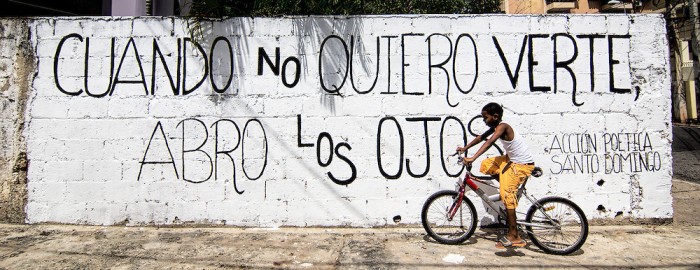Tuesday, November 15, 2022
the years are not circular
as a thunder bell, surrounded.
echoing trees of this clime
taller than i'd imagined. where was
my fear? such a storm, such a body
close near the water on the brightest
moon the eve before. but not
sober then, no, my eyes glazed like a trip
as you walked into the river.
the light, the forest, the halo,
the beach, the caves, the arc
of this story throws me over
and over into my bed unable to just
rest. sleeping in bags, sleeping with feet
of distance between limbs, sleeping
with desires all wrapped into this smallest
square of space. of space. what of
space? there were no mountains but knees
could be hills, sweat could be streams
and lightning? what could that be?
6.13.16
Monday, November 14, 2022
subway in march, 5:45 pm
i take the long way home, knowing
i am free to choose happiness
or wander off into the tunnel
on the platform two teenagers french kiss, her lips
are enormous and soft and he seems at home with them
i feel crumpled like the pastel houses lining the canal
i am transporting an adorable succulent
the size of an infant's fist, holding it close as if
it were the one thing i had to keep alive
and thinking how much easier it would be
it all i had to love were this small plant
and then i wouldn't be so hard on you
and we could like the world before distrusting it
stop performing ourselves and let the pith of us
hang out. all these permutations of esteem and ridicule
when all i want is to stay focused on everyday life
what other kind of life is there?
all the world knows it, it's a miracle
the blue womb of evening
the nimble sparrow, the smug duck in the pond
the eruption of flowering quince
o shackle us to the rock of it
we will try to love each other
though there's wind on our heads
and we cannot read minds
the train jumps above ground
and stripes the car in gold light
it's the light of early spring
Thursday, June 16, 2022
grief cocktail
i miss you in the way of the oyster knife (i've never used). with precision. stabs to the abdomen. high-pitched squeal in ears. unavoidable.
Sunday, February 13, 2022
redlining and guilt
from notes from no man's land by eula biss
"in the 1960s, many white suburban communities gained access to federal funds for 'urban aid' by incorporating themselves as municipalities. in the 1970s and 1980s, lenders refused to obey new fair housing laws, and the federal home loan bank board redlined areas with increasing minority populations. the 1975 home mortgage disclosure act and the 1977 community reinvestment act were ignored by the reagan administration. now, whites who became home owners under discriminatory circumstances are profiting from the appreciation of their homes. 'the appreciated value of owner-occupied homes,' writes george lipsitz, 'constitutes the single greatest source of wealth for white americans. it is the factor most responsible for the disparity between blacks and whites in respect to wealth -- a disparity between the two groups much greater than their differences in income. it is the basis of intergenerational transfers of wealth that enable white parents to give their children financial advantages over the children of other groups." (211)
"professor of anthropology allan young discusses ed daily, along with several vietnam veterans who confessed to atrocities they did not commit, in his 2002 article 'the self-traumatized perpetrator as a <transient mental illness.>' these men, who participated in military action they may have found deeply objectionable even if it was not technically criminal, now imagine themselves criminals who suffer because of their crimes -- self-traumatized perpetrators. 'in their own eyes,' young explains, 'their pain is real and an extension of the victims' suffering.' the self-traumatized perpetrator who 'becomes a victim as a consequence of being a perpetrator' is a phenomenon, according to young, mainly limited to the united states. he notes that certain cultural and political conditions encourage the self-traumatized perpetrator to manifest as a disorder, including a society that tends to think of victims and perpetrators as polar opposites. (in such a society, the person who believes himself to be both victim and perpetrator can find psychological release only through a disorder.) and so perhaps our tendency to imagine victims only in opposition to perpetrators is what prevents us from recognizing ourselves as an entire nation of self-traumatized perpetrators -- some of us experiencing our trauma as guilt, others as delusion.
when i think about the nature of guilt, i think, inevitably, about 'notes of a native son.' in that essay james baldwin writes about the bitterness and anger that destroyed his father, and then about the bitterness and anger he feels toward his father, feelings so closely tied to his feelings about his country that they cannot be untangled. 'i saw nothing very clearly,' he writes, 'but i did see this: that my life, my real life, was in danger, and not from anything other people might do but from the hatred i carried in my own heart.'
whenever i read this essay i am moved to wonder if guilt, badly handled, might be just as gangrenous and just as dangerous as hate. if anger is, as baldwin so often points out, the inevitable inheritance of the black american, then guilt may be the inevitable inheritance of the white american. (this is not a guilt based on individual wrongdoing but on collective responsibility, so if you find the word 'guilt' objectionable, think 'responsibility' instead. but i prefer 'guilt,' in part because of its religious associations. we tend to think of guilt as embarrassing and unnecessary now, but it was once imagined, the old testament suggests, as an impetus to redemption. the prophet amos: 'woe to them that are at ease in zion.')" (221 & 222)
